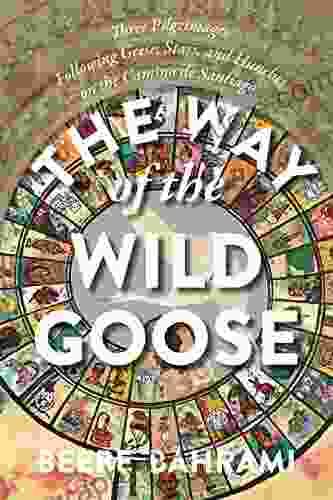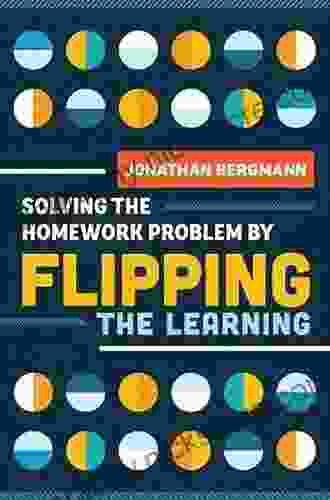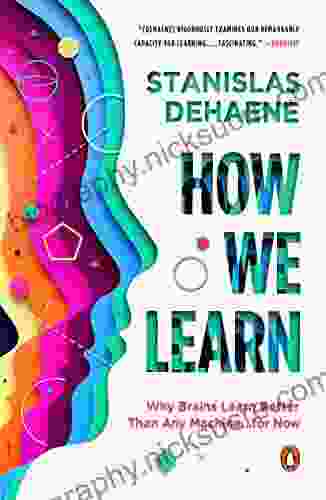Why Brains Learn Better Than Any Machine For Now: Exploring the Unmatched Learning Prowess of the Human Mind

In the relentless pursuit of artificial intelligence, we often overlook the remarkable learning capabilities of the human brain. Despite the rapid advancement of machine learning algorithms and computational power, our brains possess an intricate symphony of neural processes that enable them to learn far more efficiently and comprehensively than any machine today. In this exploration, we will delve into the intricacies of brain learning, uncovering its profound advantages over machines and highlighting the unique attributes that endow us with an unmatched capacity for learning.
The Plasticity of the Brain
At the core of the brain's learning prowess lies its remarkable plasticity, the ability to adapt and reorganize neural pathways in response to new experiences. This dynamic characteristic, absent in machines, enables our brains to continuously mold and refine their neural architecture, creating new connections and strengthening existing ones as we learn and acquire new knowledge.
4.8 out of 5
| Language | : | English |
| File size | : | 33632 KB |
| Text-to-Speech | : | Enabled |
| Screen Reader | : | Supported |
| Enhanced typesetting | : | Enabled |
| X-Ray | : | Enabled |
| Word Wise | : | Enabled |
| Print length | : | 352 pages |
Moreover, the brain's plasticity allows for a remarkable degree of generalization. When faced with novel situations, the brain can draw upon its vast repertoire of learned patterns to make informed predictions and adapt its behavior accordingly. This ability to generalize knowledge far beyond the specific experiences encountered sets the brain apart from machines, which often struggle to extrapolate beyond the data they have been explicitly trained on.
Contextual Learning and Emotional Intelligence
The human brain possesses an unparalleled ability to learn within context, taking into account the surrounding environment, prior knowledge, and emotional cues. This contextual learning enables us to make sense of complex and ambiguous situations, inferring hidden patterns and making informed decisions.
Machines, on the other hand, typically struggle with contextual learning. They rely on explicitly defined rules and data, lacking the capacity to interpret subtle nuances or adapt their learning to different contexts. This limitation hinders their ability to perform well in real-world scenarios that are often characterized by uncertainty and complexity.
Furthermore, the human brain's emotional intelligence plays a crucial role in learning. Emotions can enhance our attention, motivation, and memory consolidation, making learning more effective. Machines, devoid of emotions, lack this powerful motivational force, potentially limiting their learning potential.
Intuitive Learning and Creative Problem-Solving
One of the most striking advantages of the human brain is its ability to engage in intuitive learning, a process that involves subconscious pattern recognition and leaps of insight. This intuitive learning often leads to creative problem-solving and novel discoveries. Machines, on the other hand, typically rely on logical reasoning and sequential processing, lacking the capacity for such intuitive leaps.
This intuitive learning is particularly evident in domains such as art, music, and scientific discovery, where the ability to connect seemingly unrelated concepts and generate original ideas is essential. Machines, bound by their algorithmic nature, often struggle to match the creativity and innovation of the human mind.
Learning in Real-Time and Transfer of Learning
The human brain excels at learning in real-time, adapting its knowledge and behavior as new information is encountered. This continuous learning process enables us to navigate dynamic and unpredictable environments, rapidly incorporating new experiences into our existing knowledge base. Machines, while capable of learning offline, often struggle to adapt their learning in real-time, limiting their ability to perform well in real-world applications.
Moreover, the human brain has a remarkable ability to transfer learning from one domain to another, leveraging previously acquired knowledge to accelerate learning in new tasks. This transfer of learning allows us to build upon existing knowledge and apply it to novel situations, enhancing our overall learning efficiency. Machines, on the other hand, typically require explicit retraining for each new task, lacking the ability to effectively transfer learned knowledge.
Limitations of Machine Learning
While machine learning algorithms have made significant strides, they are still subject to several limitations that hinder their learning capabilities compared to the human brain:
1. Lack of Generalization: Machines often struggle to generalize their learning beyond the specific data they have been trained on, making them less adaptable to novel situations. 2. Absence of Contextual Learning: Machines typically rely on explicitly defined rules and data, lacking the capacity to learn within context and interpret subtle nuances. 3. Limited Intuitive Learning: Machines lack the ability for intuitive learning, which involves subconscious pattern recognition and leaps of insight, limiting their creative problem-solving capabilities. 4. Inefficient Real-Time Learning: Machines often struggle to adapt their learning in real-time, making them less effective in dynamic and unpredictable environments. 5. Poor Transfer of Learning: Machines typically require explicit retraining for each new task, lacking the ability to effectively transfer learned knowledge from one domain to another.
The human brain is an extraordinary learning machine, far surpassing the capabilities of any existing machine learning algorithm. Its remarkable plasticity, contextual learning abilities, emotional intelligence, intuitive learning, real-time learning, and transfer of learning endow it with an unmatched capacity for learning. While machine learning continues to advance at a rapid pace, the unique attributes of the human brain are likely to ensure its continued dominance in the realm of learning for the foreseeable future.
As we continue to unravel the complexities of the brain's learning mechanisms, we gain valuable insights into the nature of intelligence and learning. This knowledge not only deepens our understanding of ourselves but also inspires the development of more intelligent and adaptive machine learning systems. In the ongoing pursuit of artificial intelligence, let us not forget the profound learning prowess of our own brains, a testament to the remarkable capabilities of the human mind.
4.8 out of 5
| Language | : | English |
| File size | : | 33632 KB |
| Text-to-Speech | : | Enabled |
| Screen Reader | : | Supported |
| Enhanced typesetting | : | Enabled |
| X-Ray | : | Enabled |
| Word Wise | : | Enabled |
| Print length | : | 352 pages |
Do you want to contribute by writing guest posts on this blog?
Please contact us and send us a resume of previous articles that you have written.
 Fiction
Fiction Non Fiction
Non Fiction Romance
Romance Mystery
Mystery Thriller
Thriller SciFi
SciFi Fantasy
Fantasy Horror
Horror Biography
Biography Selfhelp
Selfhelp Business
Business History
History Classics
Classics Poetry
Poetry Childrens
Childrens Young Adult
Young Adult Educational
Educational Cooking
Cooking Travel
Travel Lifestyle
Lifestyle Spirituality
Spirituality Health
Health Fitness
Fitness Technology
Technology Science
Science Arts
Arts Crafts
Crafts DIY
DIY Gardening
Gardening Petcare
Petcare John Lister Kaye
John Lister Kaye Bob Holtzman
Bob Holtzman Jean Smith
Jean Smith Catherine Shainberg
Catherine Shainberg Ronald Wheeler
Ronald Wheeler Sara Shepard
Sara Shepard Tara Brach
Tara Brach Daniel P Huerta
Daniel P Huerta Samantha Fitts
Samantha Fitts Hunbatz Men
Hunbatz Men Jenna Helland
Jenna Helland Eliza Reid
Eliza Reid Jonathan Bergmann
Jonathan Bergmann Bill Milliken
Bill Milliken Martin Sternstein
Martin Sternstein Visual Arts
Visual Arts Gabriyell Sarom
Gabriyell Sarom St Louis Post Dispatch
St Louis Post Dispatch Rowan Jacobsen
Rowan Jacobsen J C Cervantes
J C Cervantes Colleen Alexander Roberts
Colleen Alexander Roberts Dr Michael P Masters
Dr Michael P Masters David Klausmeyer
David Klausmeyer Martin Dugard
Martin Dugard Sam Harris
Sam Harris Leonard M Adkins
Leonard M Adkins Mark Young
Mark Young Scott Westerfeld
Scott Westerfeld Eric Leiser
Eric Leiser William H Frey
William H Frey Ray Comfort
Ray Comfort Ben Povlow
Ben Povlow Brian Switek
Brian Switek Debbie M Schell
Debbie M Schell Suzanne Wylde
Suzanne Wylde Siddhartha Rao
Siddhartha Rao Erica B Marcus
Erica B Marcus Laura Pavlov
Laura Pavlov Arnold G Nelson
Arnold G Nelson Thomas Bulfinch
Thomas Bulfinch Julie L Spencer
Julie L Spencer Ryan A Pedigo
Ryan A Pedigo Alastair Hannay
Alastair Hannay Buddy Levy
Buddy Levy Peter K Tyson
Peter K Tyson Paul Van Lierop
Paul Van Lierop Ralph Galeano
Ralph Galeano Craig Lambert
Craig Lambert John Garrity
John Garrity Stephen K Sanderson
Stephen K Sanderson Anthony Edwards
Anthony Edwards Wanda Priday
Wanda Priday Dacher Keltner
Dacher Keltner Jamie Margolin
Jamie Margolin Joanna Hunt
Joanna Hunt Helen Fisher
Helen Fisher Jake Anderson
Jake Anderson Rachelle Zukerman
Rachelle Zukerman Mark Rashid
Mark Rashid Mike Stanton
Mike Stanton Stephanie Fritz
Stephanie Fritz Daniel M Koretz
Daniel M Koretz Kenton Kroker
Kenton Kroker Peter Martin
Peter Martin Basudeb Bhatta
Basudeb Bhatta Barry Friedman
Barry Friedman Candice Davie
Candice Davie Dave Rearwin
Dave Rearwin Mary A Fristad
Mary A Fristad Roy Porter
Roy Porter Dan R Lynch
Dan R Lynch Shannon Reilly
Shannon Reilly Nichole Carpenter
Nichole Carpenter Jim Wharton
Jim Wharton Titus M Kennedy
Titus M Kennedy Marie Rutkoski
Marie Rutkoski Lawrence Baldassaro
Lawrence Baldassaro Hollis Lance Liebman
Hollis Lance Liebman Cindy Post Senning
Cindy Post Senning Bb
Bb Jay Abramson
Jay Abramson T C Edge
T C Edge Rob Hutchings
Rob Hutchings James M Collins
James M Collins Robin Mcmillan
Robin Mcmillan Jean Illsley Clarke
Jean Illsley Clarke T H White
T H White Larry Dane Brimner
Larry Dane Brimner Jessica F Shumway
Jessica F Shumway Mark H Newman
Mark H Newman Molly E Lee
Molly E Lee Conor Nolan
Conor Nolan Karen Bush
Karen Bush Philip Maffetone
Philip Maffetone Chuck Missler
Chuck Missler Jonathan Kellerman
Jonathan Kellerman David Beaupre
David Beaupre Stanislas Dehaene
Stanislas Dehaene Lew Freedman
Lew Freedman Chris Mooney
Chris Mooney Dr Faith G Harper
Dr Faith G Harper Ben Collins
Ben Collins Robin Nixon
Robin Nixon Proper Education Group
Proper Education Group Diane Musho Hamilton
Diane Musho Hamilton Autumn Carpenter
Autumn Carpenter Holger Schutkowski
Holger Schutkowski Tim Ingold
Tim Ingold Victor Seow
Victor Seow Nina Manning
Nina Manning Jack Andraka
Jack Andraka Linda Welters
Linda Welters Bernard Marr
Bernard Marr John Aldridge
John Aldridge Deanna Roy
Deanna Roy Michelle Rigler
Michelle Rigler Joanne Glenn
Joanne Glenn Rhonda Belle
Rhonda Belle Simon Spurrier
Simon Spurrier Laura Ingalls Wilder
Laura Ingalls Wilder Tami Anastasia
Tami Anastasia Eddie Merrins
Eddie Merrins Richard Meadows
Richard Meadows Chiara Sparks
Chiara Sparks Ron Lemaster
Ron Lemaster Vincent Bossley
Vincent Bossley Richard J Dewhurst
Richard J Dewhurst Farzana Nayani
Farzana Nayani Kara Tippetts
Kara Tippetts Bagele Chilisa
Bagele Chilisa Achille Rubini
Achille Rubini Robin Knox Johnston
Robin Knox Johnston Violet Moller
Violet Moller Ping Li
Ping Li Blair Braverman
Blair Braverman Edwin R Sherman
Edwin R Sherman Nicole Martin
Nicole Martin Barbara Neiman
Barbara Neiman Bashir Hosseini Jafari
Bashir Hosseini Jafari Rob Pope
Rob Pope Jude Currivan
Jude Currivan J Michael Veron
J Michael Veron Danny Staple
Danny Staple Nicholas Sparks
Nicholas Sparks Ian Leslie
Ian Leslie David Taylor
David Taylor Tori Day
Tori Day Julian I Graubart
Julian I Graubart Lock Gareth
Lock Gareth David Starbuck Smith
David Starbuck Smith James C Radcliffe
James C Radcliffe Pavla Kesslerova
Pavla Kesslerova Ron Avery
Ron Avery Scott Malthouse
Scott Malthouse Ben Goldacre
Ben Goldacre Mike Swedenberg
Mike Swedenberg Ascencia
Ascencia Chase Hill
Chase Hill Vanessa Garbin
Vanessa Garbin Jutta Schickore
Jutta Schickore W Hamilton Gibson
W Hamilton Gibson Mike Commito
Mike Commito Randy Baker
Randy Baker Becca Anderson
Becca Anderson Monica Hesse
Monica Hesse Jaymin Eve
Jaymin Eve F William Lawvere
F William Lawvere Eugene V Resnick
Eugene V Resnick Jill Brown
Jill Brown Marco Grandis
Marco Grandis Benita Bensch
Benita Bensch James Koeper
James Koeper Smart Reads
Smart Reads Barry Johnston
Barry Johnston Peter Wacht
Peter Wacht John Kimantas
John Kimantas Jessica Smartt
Jessica Smartt Leia Stone
Leia Stone Graham R Gibbs
Graham R Gibbs Elliott Vandruff
Elliott Vandruff S K Gupta
S K Gupta Jennifer Estep
Jennifer Estep Beau Bradbury
Beau Bradbury Steven Rinella
Steven Rinella Editors Of Southern Living Magazine
Editors Of Southern Living Magazine Beebe Bahrami
Beebe Bahrami Craig Romano
Craig Romano Sam Nadler
Sam Nadler Paul Doiron
Paul Doiron Jeremy Sweet
Jeremy Sweet Rachel Dash
Rachel Dash Babu The Panda
Babu The Panda Maha Alkurdi
Maha Alkurdi Breanna Hayse
Breanna Hayse Robert A Baruch Bush
Robert A Baruch Bush Catherine J Allen
Catherine J Allen Brandon Royal
Brandon Royal V B Alekseev
V B Alekseev Jane Hardwicke Collings
Jane Hardwicke Collings Lynn Mann
Lynn Mann Isabel Fonseca
Isabel Fonseca Lynn Rosen
Lynn Rosen Temple West
Temple West Barbara Russell
Barbara Russell Emma Walker
Emma Walker Chris Cage
Chris Cage Chris Eberhart
Chris Eberhart William Wasserman
William Wasserman Richard Chun
Richard Chun Valerie Pollmann R
Valerie Pollmann R Charlotte Browne
Charlotte Browne Sharon Dukett
Sharon Dukett Brian Gilbert
Brian Gilbert James Syhabout
James Syhabout C R Hallpike
C R Hallpike Fred Mitchell
Fred Mitchell Kit Yates
Kit Yates Donald Frias
Donald Frias Carlo Collodi
Carlo Collodi Leslie Stager
Leslie Stager Clayton King
Clayton King Joseph Epes Brown
Joseph Epes Brown Wayne B Chandler
Wayne B Chandler Print Replica Kindle Edition
Print Replica Kindle Edition Yang Kuang
Yang Kuang Daniel T Willingham
Daniel T Willingham Timothy Pakron
Timothy Pakron Emily Chappell
Emily Chappell Sean Mcindoe
Sean Mcindoe Arny Alberts
Arny Alberts Mike Massie
Mike Massie Khurshed Batliwala
Khurshed Batliwala Steve Burrows
Steve Burrows Bridget Flynn Walker Phd
Bridget Flynn Walker Phd John Quick
John Quick Clifford Herriot
Clifford Herriot Richard Harris
Richard Harris Barbara Kennard
Barbara Kennard Jenn Mcallister
Jenn Mcallister Dustin Hansen
Dustin Hansen Macauley Lord
Macauley Lord Boy Scouts Of America
Boy Scouts Of America Barry Rhodes
Barry Rhodes Sam Cowen
Sam Cowen Ernie Morton
Ernie Morton Percy Boomer
Percy Boomer Sam Kean
Sam Kean Toby A H Wilkinson
Toby A H Wilkinson Shayla Black
Shayla Black Mike Loades
Mike Loades Rebecca Solnit
Rebecca Solnit Pat Shipman
Pat Shipman Nick Townsend
Nick Townsend Richard Scott
Richard Scott Geoffrey Finch
Geoffrey Finch Bryan Peterson
Bryan Peterson Yuki Mano
Yuki Mano Howard Zinn
Howard Zinn David Jamieson Bolder
David Jamieson Bolder Thomas Lumley
Thomas Lumley Rachel Smith
Rachel Smith John Whitman
John Whitman Kindle Edition
Kindle Edition Michael Wood
Michael Wood Charles River Editors
Charles River Editors Gary Soto
Gary Soto Graham Farmelo
Graham Farmelo Reprint Edition Kindle Edition
Reprint Edition Kindle Edition Linda Carroll
Linda Carroll Janna Levin
Janna Levin John C Norcross
John C Norcross James Randi
James Randi John D Barrow
John D Barrow Debra Kilby
Debra Kilby Charlie Shamp
Charlie Shamp Hongyu Guo
Hongyu Guo Leah Cullis
Leah Cullis Prince Asare
Prince Asare Harvey Wittenberg
Harvey Wittenberg Janis Keyser
Janis Keyser Barbara Rogoff
Barbara Rogoff Baruch Englard
Baruch Englard Bobbie Faulkner
Bobbie Faulkner Otto Scharmer
Otto Scharmer Denton Salle
Denton Salle Diane Yancey
Diane Yancey Steven Bell
Steven Bell Eric Engle
Eric Engle Scott Mactavish
Scott Mactavish Cynthia Levinson
Cynthia Levinson Charles Buist
Charles Buist Bruce Pascoe
Bruce Pascoe Tim Marshall
Tim Marshall Fabien Clavel
Fabien Clavel Jeff Alt
Jeff Alt Edith Grossman
Edith Grossman Rob Rains
Rob Rains David Abram
David Abram Geert Hofstede
Geert Hofstede Gordon H Chang
Gordon H Chang John J Robinson
John J Robinson Ellen Notbohm
Ellen Notbohm Charlotte Booth
Charlotte Booth Steven Hawthorne
Steven Hawthorne Mike Allison
Mike Allison Chris Bennett
Chris Bennett Helen Kara
Helen Kara John G Robertson
John G Robertson Barbara Bassot
Barbara Bassot Sergei Urban
Sergei Urban R L Medina
R L Medina Richard Weissbourd
Richard Weissbourd Guy P Harrison
Guy P Harrison Chadd Vanzanten
Chadd Vanzanten Glenna Mageau
Glenna Mageau John Sandford
John Sandford Kate Williams
Kate Williams Monta Z Briant
Monta Z Briant Mick Conefrey
Mick Conefrey Mark Ellyatt
Mark Ellyatt Beth Miller
Beth Miller David Thomas
David Thomas Sampson Davis
Sampson Davis Barry Glassner
Barry Glassner Muhammad Zulqarnain
Muhammad Zulqarnain Scott Reed
Scott Reed James Kilgo
James Kilgo Christopher Taylor Ma Lmft
Christopher Taylor Ma Lmft J Bruce Brackenridge
J Bruce Brackenridge Thomas French
Thomas French Elizabeth George Speare
Elizabeth George Speare Kam Knight
Kam Knight Erik J Brown
Erik J Brown Jim Fay
Jim Fay Barzin Pakandam
Barzin Pakandam Kara Goucher
Kara Goucher Shmuel Peerless
Shmuel Peerless Lewis Thomas
Lewis Thomas Mark Kurlansky
Mark Kurlansky Kathleen Masters
Kathleen Masters Charles Soule
Charles Soule Diane Cardwell
Diane Cardwell Dave Karczynski
Dave Karczynski Margaret Owen
Margaret Owen Brad Burns
Brad Burns Barbara Ann Kipfer
Barbara Ann Kipfer Kyle Butler
Kyle Butler Gary Lincoff
Gary Lincoff Barbara Mertz
Barbara Mertz Reelav Patel
Reelav Patel P J Agness
P J Agness Marc Loy
Marc Loy W Scott Elliot
W Scott Elliot Erica Schultz
Erica Schultz Dan Golding
Dan Golding Joshua Hammer
Joshua Hammer Ryan T White
Ryan T White Dustin Salomon
Dustin Salomon Massimo Cossu Nicola Pirina
Massimo Cossu Nicola Pirina Alexandra Andrews
Alexandra Andrews Ben Sedley
Ben Sedley Jeffrey Jensen Arnett
Jeffrey Jensen Arnett George Macdonald
George Macdonald Barbara Gastel
Barbara Gastel Stan Tekiela
Stan Tekiela Jane Butel
Jane Butel Yuval Noah Harari
Yuval Noah Harari Roanne Van Voorst
Roanne Van Voorst Ellen Lewin
Ellen Lewin John Henry Phillips
John Henry Phillips Pearson Education
Pearson Education Steve Biddulph
Steve Biddulph Catherine M Cameron
Catherine M Cameron Elizabeth Lockwood
Elizabeth Lockwood Barry J Kemp
Barry J Kemp Mackenzi Lee
Mackenzi Lee Suzanne Leonhard
Suzanne Leonhard David A Bogart
David A Bogart Tom Miller
Tom Miller Luke Gilkerson
Luke Gilkerson Malcolm Hebron
Malcolm Hebron Jen Houcek
Jen Houcek Eric Franklin
Eric Franklin Vanessa Ogden Moss
Vanessa Ogden Moss Betty Stone
Betty Stone Joseph Alton M D
Joseph Alton M D Mike High
Mike High Meghan L Marsac
Meghan L Marsac Jade Barrett
Jade Barrett Richard H Immerman
Richard H Immerman Nancy E Willard
Nancy E Willard Jayanti Tambe
Jayanti Tambe Rachel Morgan
Rachel Morgan Ryan Higa
Ryan Higa Rick Joyner
Rick Joyner Mitch Prinstein
Mitch Prinstein S E Hinton
S E Hinton Bill Mckibben
Bill Mckibben Christopher L Heuertz
Christopher L Heuertz Joshua G Shifrin
Joshua G Shifrin David Cockburn
David Cockburn Susan Nance
Susan Nance Donald R Gallo
Donald R Gallo Barry Rabkin
Barry Rabkin Mark Mayfield
Mark Mayfield Cait Stevenson
Cait Stevenson Mina Lebitz
Mina Lebitz Barbara Taylor
Barbara Taylor Cary J Griffith
Cary J Griffith Mia Scotland
Mia Scotland Oliver T Spedding
Oliver T Spedding Linnea Dunne
Linnea Dunne Rebecca Rupp
Rebecca Rupp Craig Martin
Craig Martin Marshall Jon Fisher
Marshall Jon Fisher Jenny Chandler
Jenny Chandler Nick Neely
Nick Neely Noah Brown
Noah Brown Cara Koscinski
Cara Koscinski Scarlett Thomas
Scarlett Thomas Daniel J Barrett
Daniel J Barrett Daniel S Lobel Phd
Daniel S Lobel Phd Burt L Standish
Burt L Standish Sport Hour
Sport Hour Leon Mccarron
Leon Mccarron Allan V Horwitz
Allan V Horwitz Michael Palin
Michael Palin Farley Mowat
Farley Mowat William Byers
William Byers Gerald Beaudry
Gerald Beaudry Kenneth Wilgus Phd
Kenneth Wilgus Phd Cheryl Erwin
Cheryl Erwin Constanze Niedermaier
Constanze Niedermaier Beau Miles
Beau Miles Emma Brockes
Emma Brockes Susan Scott
Susan Scott Robert Hogan
Robert Hogan Jennifer Traig
Jennifer Traig Jack Newman
Jack Newman Robert Ardrey
Robert Ardrey Nicholas Wolterstorff
Nicholas Wolterstorff Nick Bollettieri
Nick Bollettieri Matt Taddy
Matt Taddy Hill Gates
Hill Gates Christine Kenneally
Christine Kenneally Barry Burd
Barry Burd Mykel Hawke
Mykel Hawke Ken Xiao
Ken Xiao John H Mcwhorter
John H Mcwhorter Kate Darling
Kate Darling Justin Sirois
Justin Sirois Jeff Belanger
Jeff Belanger Gordon Witteveen
Gordon Witteveen Grey Owl
Grey Owl Edward Lee
Edward Lee James Duthie
James Duthie Gay Robins
Gay Robins Melissa Gomes
Melissa Gomes Bonnie Tsui
Bonnie Tsui Master Gamer
Master Gamer Patrick Sweeney
Patrick Sweeney David Burch
David Burch Melissa Haag
Melissa Haag Joseph Schmuller
Joseph Schmuller Nadine Hays Pisani
Nadine Hays Pisani Dr Craig Malkin
Dr Craig Malkin Lily Collins
Lily Collins Casey Watson
Casey Watson Trish Kuffner
Trish Kuffner Crystal Duffy
Crystal Duffy Mark Twain
Mark Twain Julie Buxbaum
Julie Buxbaum James Duggan
James Duggan David Aretha
David Aretha Stefan Ecks
Stefan Ecks Barbara Illowsk
Barbara Illowsk Susan Dennard
Susan Dennard Max Marchi
Max Marchi Jesse Liberty
Jesse Liberty Basu Shanker
Basu Shanker Frederick Douglass Opie
Frederick Douglass Opie Stephen J Bavolek
Stephen J Bavolek Spencer Wells
Spencer Wells Jennifer Pharr Davis
Jennifer Pharr Davis
Light bulbAdvertise smarter! Our strategic ad space ensures maximum exposure. Reserve your spot today!

 Clarence BrooksIndigenous Research Methodologies: Decolonizing Knowledge Production with...
Clarence BrooksIndigenous Research Methodologies: Decolonizing Knowledge Production with...
 Harrison BlairZen and the Art of Table Tennis: A Philosopher's Guide to Playing the Game of...
Harrison BlairZen and the Art of Table Tennis: A Philosopher's Guide to Playing the Game of...
 Thomas PowellUnveiling the Enchanting Nature of the Appalachian Trail: A Journey Through...
Thomas PowellUnveiling the Enchanting Nature of the Appalachian Trail: A Journey Through... Alexander BlairFollow ·10.1k
Alexander BlairFollow ·10.1k Jarrett BlairFollow ·6.1k
Jarrett BlairFollow ·6.1k Dale MitchellFollow ·12.1k
Dale MitchellFollow ·12.1k Robert BrowningFollow ·2k
Robert BrowningFollow ·2k August HayesFollow ·11.3k
August HayesFollow ·11.3k Douglas PowellFollow ·10.1k
Douglas PowellFollow ·10.1k David Foster WallaceFollow ·8.7k
David Foster WallaceFollow ·8.7k Arthur C. ClarkeFollow ·7.8k
Arthur C. ClarkeFollow ·7.8k

 Israel Bell
Israel BellEmbark on an Epic 160-Mile Expedition for Charity on the...
Prepare yourself for an...

 Josh Carter
Josh CarterThe Way of the Wild Goose: A Journey of Embodied Wisdom...
The Way of the Wild Goose is an ancient...

 Allen Parker
Allen ParkerMastering the Art of Bean Fly Casting: A Comprehensive...
Fly fishing,...

 Aaron Brooks
Aaron BrooksSolving the Homework Problem by Flipping the Learning
What is flipped...

 Fletcher Mitchell
Fletcher MitchellThe Jane Butel Library: A Renewed Source of Knowledge and...
The Jane Butel...
4.8 out of 5
| Language | : | English |
| File size | : | 33632 KB |
| Text-to-Speech | : | Enabled |
| Screen Reader | : | Supported |
| Enhanced typesetting | : | Enabled |
| X-Ray | : | Enabled |
| Word Wise | : | Enabled |
| Print length | : | 352 pages |








